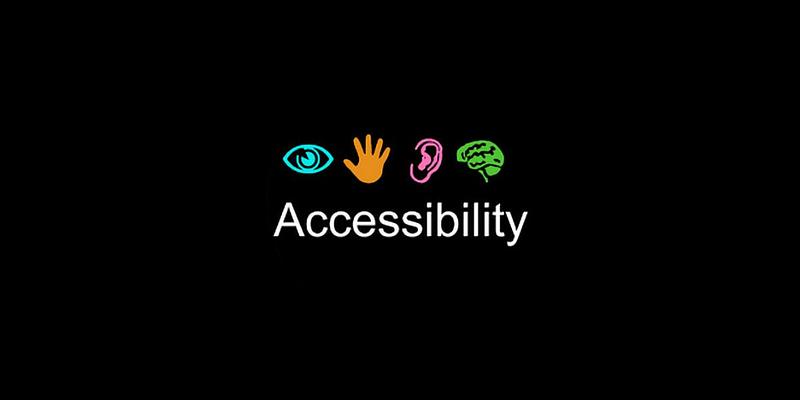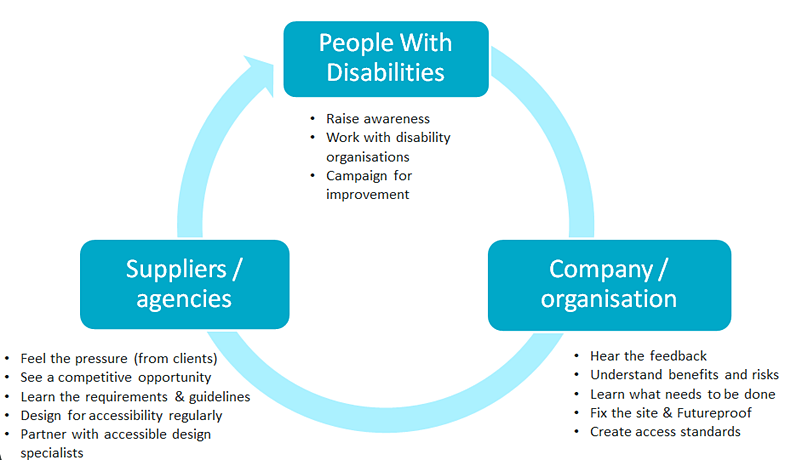Improving accessibility in the UAE
1 August 2016 - Chris Rourke

The United Arab Emirates is a tremendously exciting and ambitious country and Dubai, as host of the Expo 2020, has the opportunity to show the world the result of their efforts and vision for the future.
Importantly, that vision includes ensuring the Expo and public services can be enjoyed by the widest possible audience. A few years ago the Dubai Government initiated the MyCommunity programme(this will open in a new window) of projects to promote the participation and inclusion of persons with disabilities in the community. With typical Dubai ambition, the goal is eliminating all obstacles that may stand in the way of persons with disabilities engaging in their environments.
By implementing policies and best practices they aim to empower persons with disabilities to have an environment that is inclusive and provides access to opportunities on an equal basis with others.
Much of the focus of this project is making physical accommodations to buildings, but in parallel with this there has been a steady improvement to the accessibility of online digital services. Government and various commercial sectors can benefit by improving accessibility to sell products and deliver their services to the widest possible audience.
About five years ago we conducted a project for the Government of Abu Dhabi during which we reviewed the web accessibility for Abu Dhabi government entities. We delivered digital accessibility guidelines and training and researched how well the topic web accessibility was understood by organisation commissioning websites and the digital agencies that created them. Our findings showed a lot of room for improvement. Many organisations were unaware of the possibility to create accessible online services, and there were few agencies putting in the extra effort to make their sites accessible.
What was needed was a degree of pressure from the main stakeholders in the accessibility ecosystem: • Persons with disabilities, and their advocates, needed a louder voice in demanding online accessibility • Organisations commissioning websites needed to understand the need and demand more accessible sites • Digital agencies needed to apply the skills to create accessible digital products –and recognise it as a potential competitive advantage
I envisioned a ‘digital accessibility marketplace’ among these stakeholders which reflected the steady improvements in digital accessibility which we witnessed in during the 2000’s in the UK.

I am glad to see that there are signs of improvements to the online accessibility in the UAE and wider Middle East region. Many eGovernment bodies have substantially improved their accessibility and some of the redesigned bank sites have clearly embraced accessibility guidelines during their redesign. We have again been involved in this transition, for example working with a leading airline to improve their digital accessibility through a programme of audits, training and accessible design consultancy to ensure that they meet the accessibility requirements set out by the US Department of Transportation. Compared to many others airlines that need to meet this important requirement, our client has demonstrated best practices in web accessibility for the industry.
Although there are still many examples of accessibility barriers online, in general the landscape for accessibility in the region has improved greatly in the past five years, which is gratifying to see. The ambitious goals set out by the MyCommunity accessibility programme will be an important catalyst to deliver further improvements and we look forward to seeing these changes.
Need further advice? If you are interested in improving the accessibility of your website please contact us. We have several web accessibility services to help you achieve your goals including:
• Inclusive design strategy
• Accessibility audits
• Usability testing with persons with disabilities, and
• Training to build your in-house accessibility skills
You might also be interested in...
Understanding Accessibility Drift - And How to Prevent It
12 February 2026Why accessibility standards erode after audits, and what continuous monitoring can do about it.
Read the article: Understanding Accessibility Drift - And How to Prevent ItAccessibility Toolkit - Access360 Managed Service
5 January 2026Continuous WCAG monitoring, expert audits, and capability building to maintain sustainable digital accessibility .
Read the article: Accessibility Toolkit - Access360 Managed ServiceWhen Did You Last Update Your Accessibility Statement?
11 December 2025Your accessibility statement says more about your organisation than you think. Learn why keeping it current matters for trust, compliance, and user experience—and what UK, EU, and US regulations expect.
Read the article: When Did You Last Update Your Accessibility Statement?